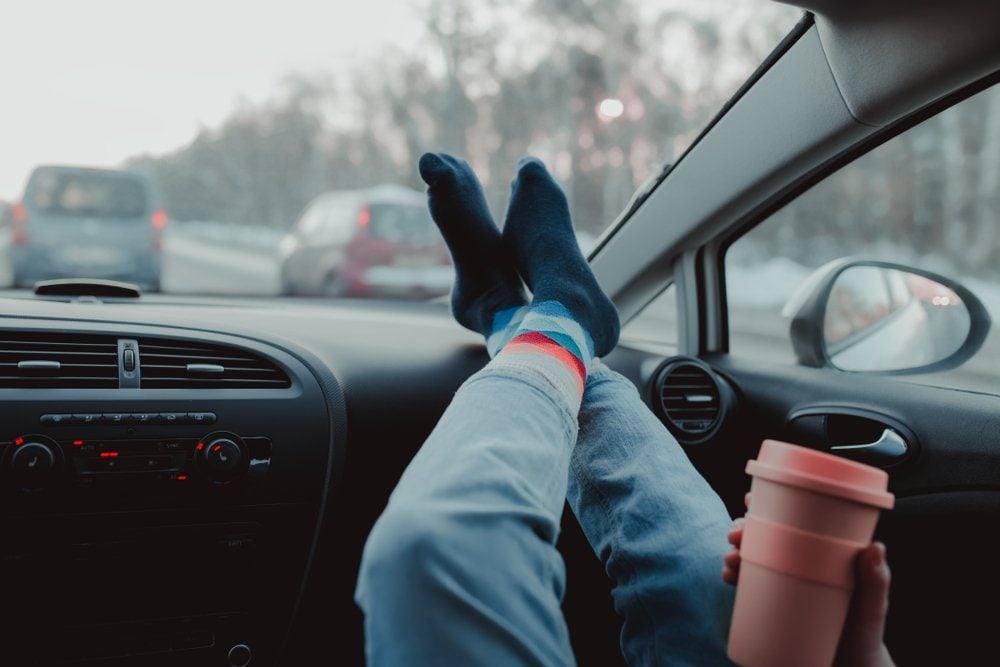
Putting your feet on the dashboard
Whether you’re in the passenger seat or driving your car, your feet should stay off the dashboard. In a NerdWallet report, three percent of drivers admit to putting their feet on the dashboard or out the window while driving with cruise control. Although this is a relatively small percentage, there is no reason for keeping your feet up—even if you’re sitting shotgun. In 2015, a Georgia couple was in a car accident in which the passenger had her feet on the dashboard. She broke both of her legs in several places and urges people not to make the same mistake.
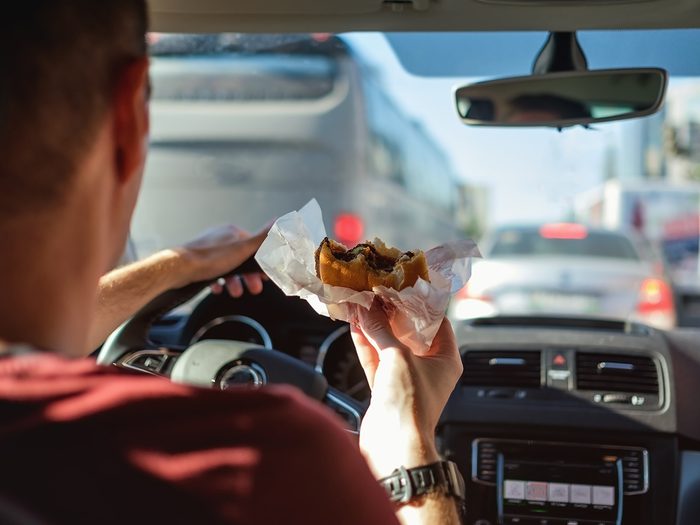
Eating a full meal
Almost everyone is guilty of eating or drinking behind the wheel at one point or another. Richard Reina, product training director at the aftermarket auto retailer CARiD.com, says sipping on a cup of coffee or soda is generally fine; just make sure you’re able to grip the wheel and keep your eyes on the road. “However, the more involved a snack or meal gets, the more distracted you might become,” he says. It might be tempting to reach for a fallen French fry, but it’s also incredibly dangerous.
Find out why you should never follow a friend when you’re driving.
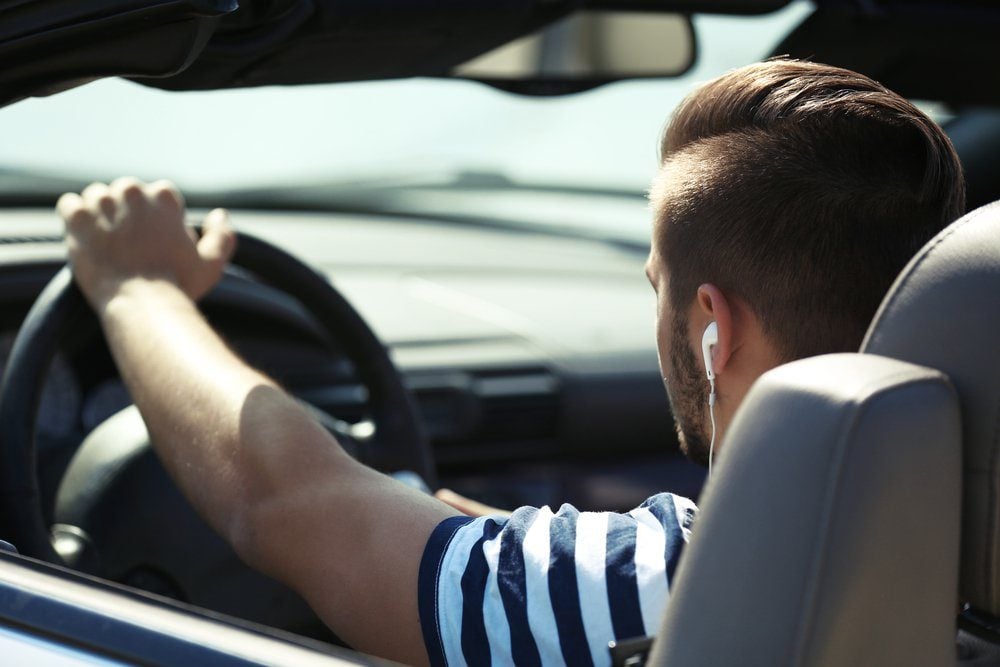
Using headphones
Having some tunes playing through the car speakers during road trips and long commutes isn’t a problem, but you should avoid using headphones while driving. “Headphones decrease your awareness even more by filtering out other noises more than just your car’s speakers,” Reina says. Although it’s safer to make calls with headphones rather than taking a hand off the wheel, Reina says to be extra cautious since outside sounds will be harder to hear.
These great car gadgets make driving even safer.
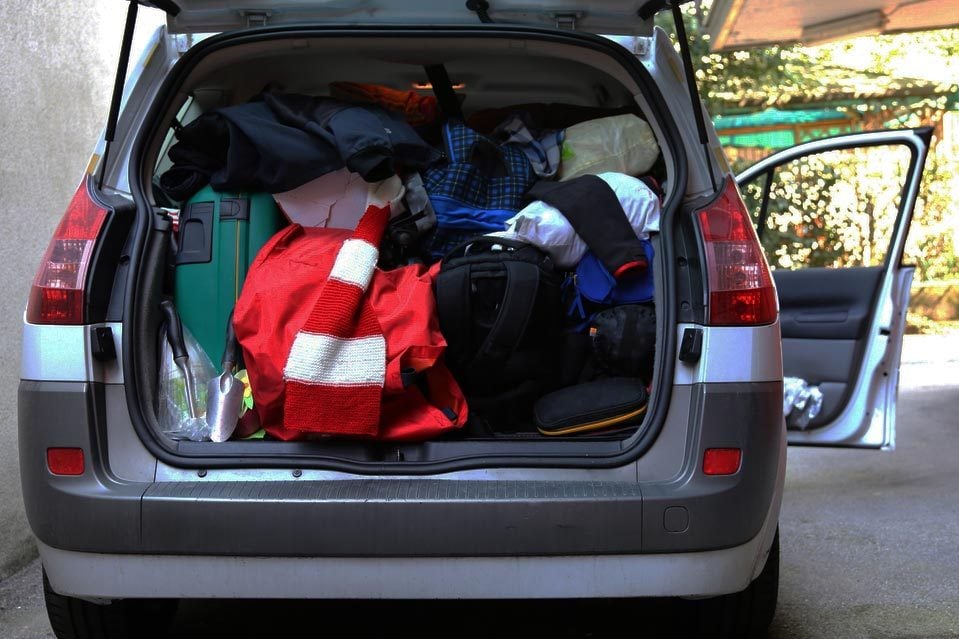
Storing unnecessary items
Some people treat their cars like their home away from home, but they shouldn’t act as a mobile storage unit. Reina says large items in your car could block your visibility, creating dangerous blind spots and limiting your view for backing up. If there’s an emergency or an accident, anything not bolted down could easily move around your car and injure someone if you brake rapidly. Plus, storing items in plain sight can make you a target for theft.
These car organizing tips could come in handy.
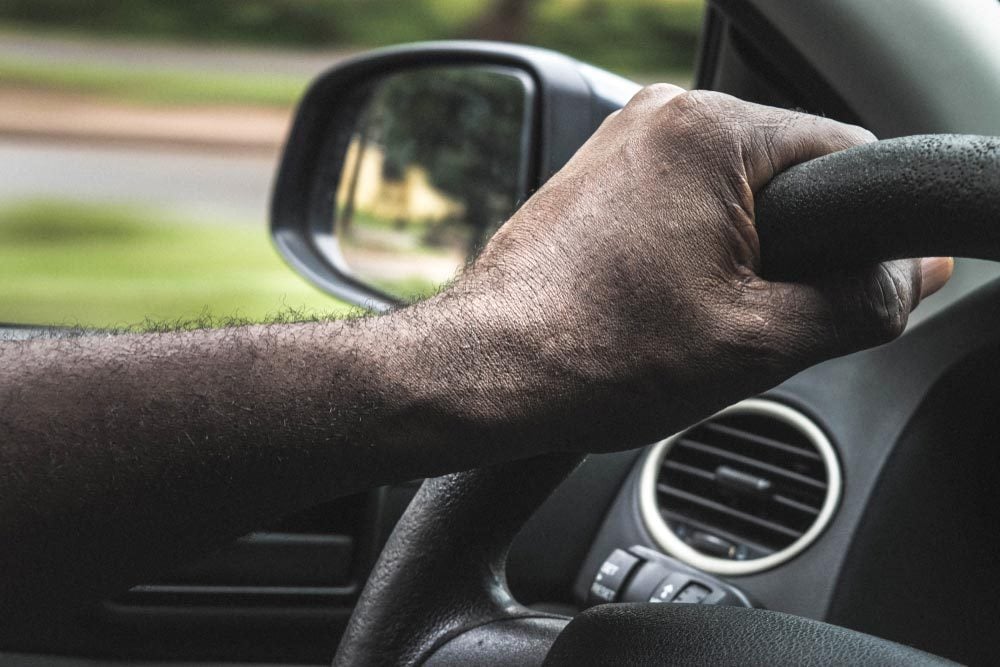
Blasting music with the windows down
In addition to annoying other drivers, playing loud music with your windows down car serves as another distraction. Much like earphones, driving with loud music can drown out potentially significant outside sounds the driver should be aware of, Reina says.
Check out some of the most popular car anti-theft devices on the market.
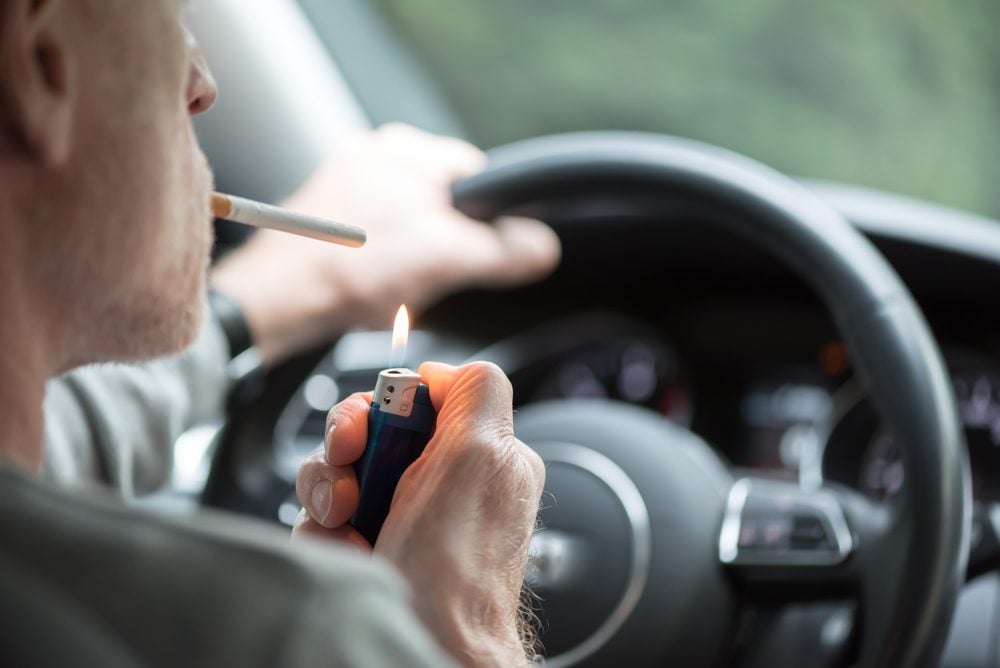
Smoking
The health risks of smoking are generally well-known. If you do decide to smoke, however, there’s research showing you should especially avoid doing so in your car. After just half a cigarette burns in a car, the quality of the air can reach levels 10 times over what the U.S. Environmental Protection Agency considers hazardous. Plus, smoking in a closed environment like your car increases third-hand smoke exposure. When people sit in a car that someone’s smoked in, the nicotine and other pollutants covering the car release into the air and get on your skin and mouth, according to Psychology Today. (It’s also one of the things that kill your car’s resale value.)
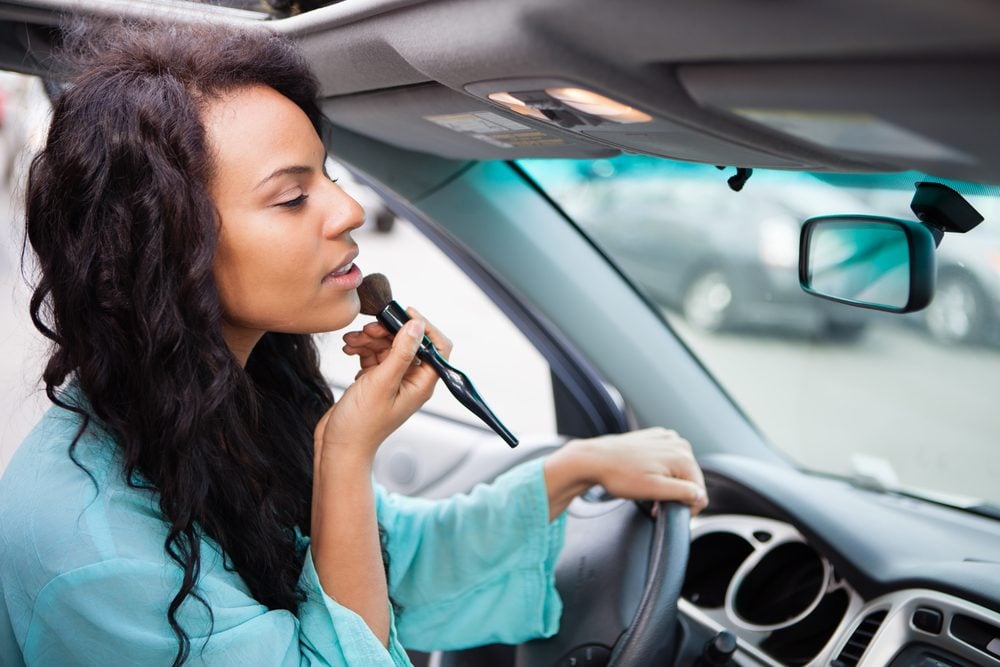
Doing your makeup
Focusing on anything other than driving means you’re distracted and more prone to accidents. “Putting on make-up while driving, along with any other distracting activities, doubles the reaction time a driver needs to put their foot on the brake,” says Stephanie Schwartz, owner of Roadrunner Traffic School. Most people also adjust their mirrors to see themselves while they’re putting on their makeup, which means you’re not using your mirror to look at the cars around you. Even if you’re parked, keeping your makeup in your car could actually damage some of your products and make them vulnerable to mould growth, per the Zoe Report.
Here are five things you should always keep in your car’s glove box.
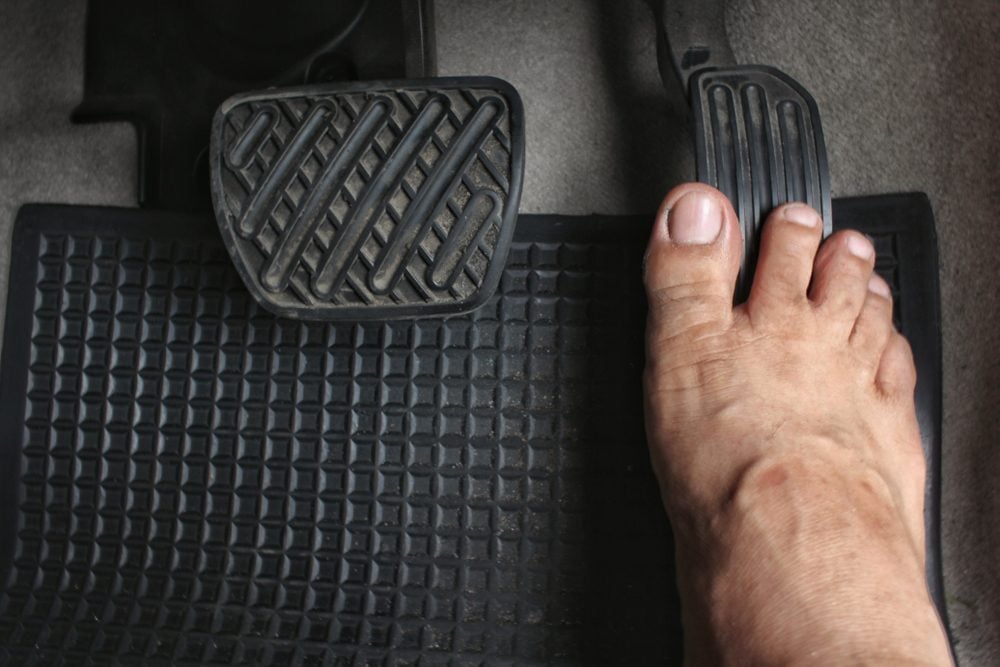
Driving without shoes on
Many drivers might be guilty of this in the summer, says Reina. It’s not necessarily the least safe thing you can do behind the wheel, but it still isn’t a good idea. “For instance, you might need to brake very hard suddenly and find yourself unable to apply the proper force with a bare or socked foot as you would with a shoe on,” Reina says. “Additionally, if you need to step out of the car in an emergency, you run the risk of injuring your feet or wasting precious time putting shoes back on.”
Don’t miss our ultimate roadside emergency guide.
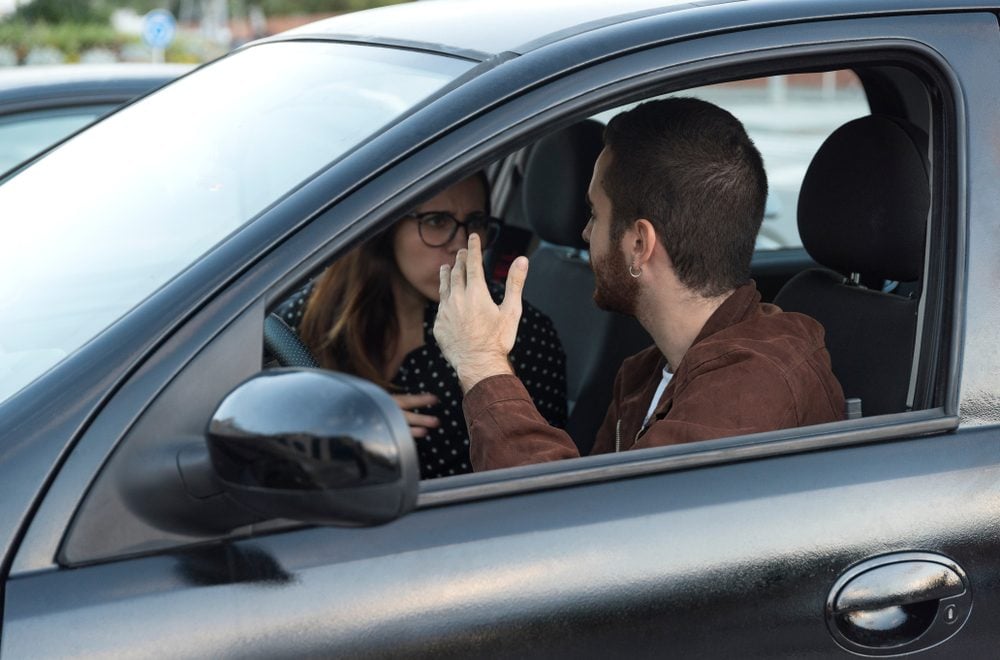
Arguing
Road rage, angry outbursts, and arguing in your car can make you vulnerable in more ways than one. According to a research review from the Harvard School of Public Health, it’s possible angry outbursts both on and off the road can trigger a heart attack or stroke hours later. The psychological stress can increase your heart rate and blood pressure, which other research found can have adverse effects up to six years later. Even if you’re having a more mellow conversation with someone in your car, you still put yourself at risk. More than half of distracted driving accidents are because of talking with another passenger, per federal data, the Washington Post reports.
Here’s expert advice on how to handle road rage.
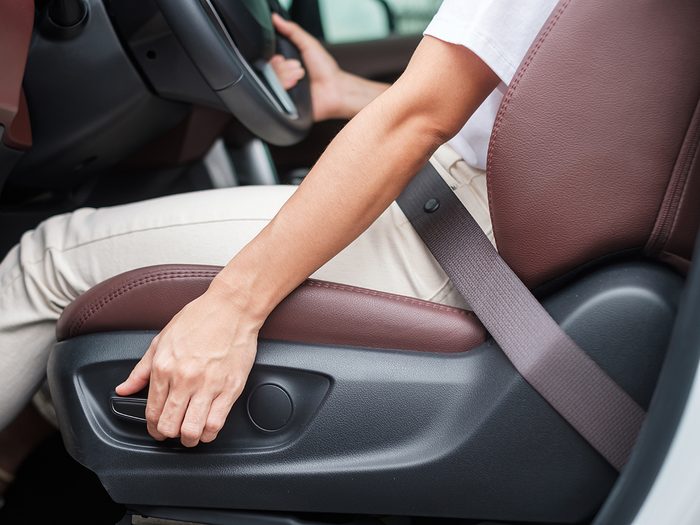
Driving with your seat far back
Drivers should be in the best possible position to control their car—and people don’t have that control if they’re too far from the wheel. “Aside from your ability to reach the pedals and react quickly to road events, you may need to control your lights, wipers, or other systems at a moment’s notice and have a hard time doing so if you’re seated too far back,” Reina says.
Here are more driving tips you’ve probably forgotten since driver’s ed.